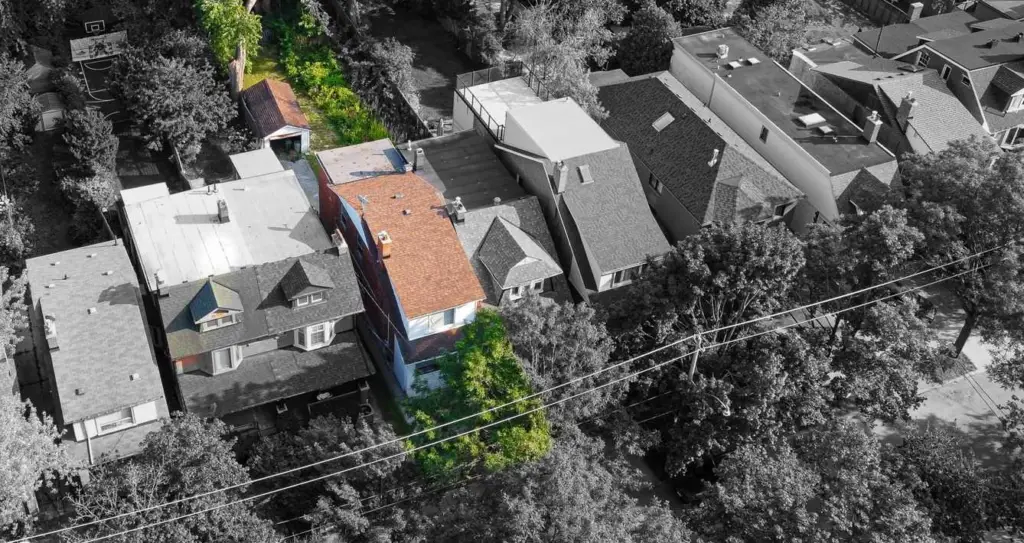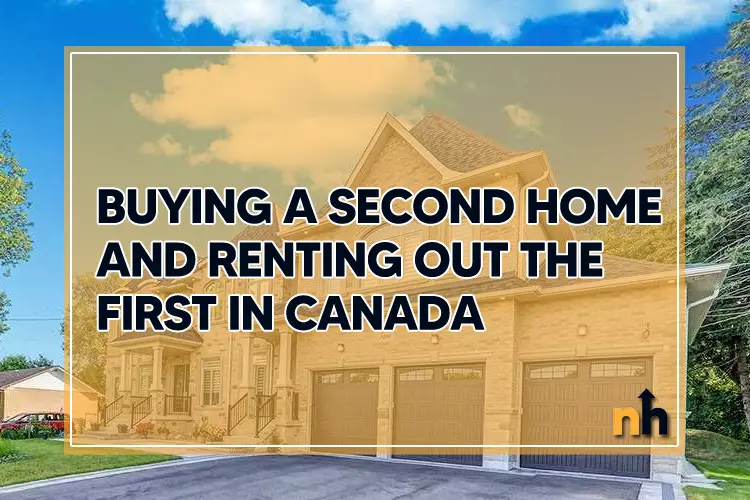You can buy a second home and rent out the first in Canada, as long as you make a 20% down payment on the new home, or deem the second home as a principal residence. There are many people who own a second home for many reasons; they could be a cottage, rental property or chalet.
The days of only the well-off purchasing a second home are long gone. Today, even millennials are in a position to buy their second home. With rising home prices, many existing homes are building equity in the home at an unprecedented rate. With significant equity built up in homes, many people are obtaining a second mortgage or a refinance on their existing home to buy their second home.
Some young families are purchasing their second property by borrowing the downpayment from their parents.
There are several popular types of properties buyers are interested in when buying a second home. These include chalets, cottages, rental properties, single-family homes, multi-unit properties and land.

In terms of financing, you can use a number of funding sources. You can obtain a new mortgage, use a home equity line of credit, refinance your home or obtain a private mortgage. These funding options all come at different costs to you, so it is important to speak to your mortgage broker for advice.
Table of Contents
Buying a Second Home
When buying your second home, you need to consider a few things.
- Can you afford the new home?
- Do you have a 20% down payment for the second home?
- Do you currently have mortgage insurance on the existing home?
These are questions you should be asking yourself, as the lender is also interested in the answers to these questions.
Can You Afford the New Home?
While you are going to rent out your existing home, you will still need to meet debt ratios. These ratios tell the lender that you are able to meet your current and future debt payments. Depending on how close your ratios are to the limits, you will need to consider the following financing options.
Refinancing Your Home
As someone considering a second home purchase, you may already own property – whether a home, rental property or commercial property. When you make your monthly mortgage payments, a portion of it goes towards paying down the mortgage principal. Additionally, any increase in the value of your home will also add equity to the home. Collectively, your equity will allow you to obtain that money through a home refinance.
Homeowners choose to refinance their homes for various reasons. We see people refinancing their homes to take advantage of lower interest rates, better mortgage terms and to tap into the equity to obtain cash. It is important to consider the consequences of breaking a mortgage – especially if you have a fixed rate mortgage.
When you refinance your home, you are borrowing 80-90% of the equity in the home. In general, lenders will offer 80% refinancing, while some special lenders do extend the loan to 90%. An example of a real-life example of refinancing a home in Ajax, Ontario for a home purchased in 2018:
Mortgage Value at 2018: $584,000
Current Mortgage Value in 2023: $507,550
Comparable Home Value: $910,000
Equity Available: $402,450
In the above example, the homeowner purchased the home in 2018 at a final builder price of $730,000 with a 20% down payment, and had a mortgage balance of 584k. Currently, there is $402,450 in equity and the bank is willing to give 80% of this as funds to the homeowner. In this case, the homeowner will receive $321,960 and their new mortgage balance is $829,510 with a new mortgage payment.
As you can see, a refinancing option is great for someone who has sufficient equity in the home. An extra $321k can be more than enough for a 20% down payment on a home. However, it is crucial to remember that the homeowner now needs to qualify for a new mortgage on the second property considering they have a previous mortgage of $829k.
When you refinance your home, you will have the option to choose between a variable or fixed rate and choose the preferred term.
Second Mortgage on Existing Home
A second mortgage works almost like a refinancing, but you end up with two mortgage’s on the home. When you obtain a second mortgage, you are tapping into the equity you have built up. The second mortgage is considered a home equity loan and not a line of credit.
Once the second mortgage is approved, it will be signed on with the home as the collateral. You will now have two mortgage payments every month, for the same home. This loan on the home can come at a different interest rate and term.
Private Mortgage on Existing Home
A private mortgage is a loan that is secured on your existing home, and provided by a private lender. A private lender can come in many forms – it can be a person, a company, a trust or small lender. These mortgages are offered at higher interest rates, as they are a form of last resort for most people.
A private mortgage is typically used by people with bad credit, low down payment or investors looking to fix and flip homes. Most lenders will require an upfront fee for signing the private mortgage, and they’ll request interest payments for a set period/term. Once the term is complete, the borrower needs to provide the mortgage amount as a payment to the lender – or sign another term.
It is important to speak to a financial advisor and mortgage broker before choosing the best financing option for you. You should ideally not consider a private mortgage if you are purchasing a second home.
Renting Out Your First Home
You can rent out your first home in Canada without any issues. A few lenders may be willing to include a portion of the rental income in the existing home for your mortgage application. However, you will need a confirmed lease signed with the party that will be leasing your existing home.
With a strict lending stress test, most lenders will want to know that you can still afford the existing home and new home if the interest rates increase. Ideally, the lender wants to know that you can afford to make mortgage payments on two homes without going into debt.
Pros and Cons of Renting Your First Home
There are advantages and disadvantages to renting out your existing home, and they need to consider carefully. If you plan the rental of your home and purchase of your second home carefully, you’ll be able to reap the benefits of renting your primary residence.
| Advantages of Renting Existing Home | Disadvantages of Renting Existing Home |
| Rental Income | Landlord Responsibility |
| Free Equity | Complicated Taxation |
| Tax Breaks | Maintenance Costs |
| Rental Portfolio | Property Taxes |
There is a common misconception in the real estate market, where homeowners think they are unable to rent out their home if there is a mortgage on it. You can rent your home regardless of whether there is a mortgage on it.
In reality, most commercial buildings, multi-unit properties and apartment buildings have a mortgage on them. As long as the revenues stay above the costs, there is a positive capitalization rate.
If you are renting your existing home, it may be worthwhile requesting your tenants to obtain tenant insurance. A tenant insurance policy will protect the tenant against any fires or theft. At the end of the day, you want to minimize the risks to you.
As the owner of a rental property, you’re able to take advantage of some tax deductions. These deductions are related to the expenses related to managing the rental property. They include maintenance, repairs, appraisal costs and depreciation costs to name a few. If you are renting out your home – you should speak to your accountant to learn about the tax implications (both pros and cons).
Steps to Renting Out Your First Home
It’s important to understand that not all rental properties will create a positive revenue stream. Just because you are collecting more than the mortgage payment does not mean you are making a profit. You will need to run the numbers, and add all expenses the property will incur. These include mortgage payments, property taxes, school and municipal taxes, repair costs and maintenance costs. If your annual rental revenue exceeds these expenses, then you are making a profit on your rental home.
We’ve listed the steps to follow to rent out your first home.
- Project the Rental Revenue
- Estimate the Tax Implications
- Talk to Mortgage Broker if Lender Allows Rental
- Talk to Home Insurance Provider to Allow Rental
- Talk to Property Manager’s if Needed
- List and Find Tenants
- Review Tenants and Run Credit Checks
- Review and Sign Lease
- Collect Deposits and Setup Payments
